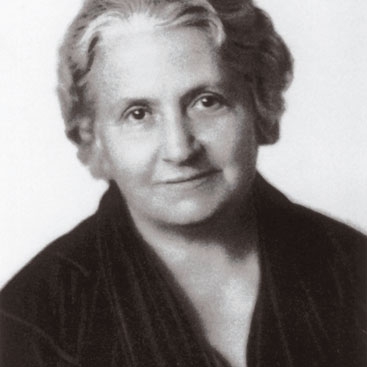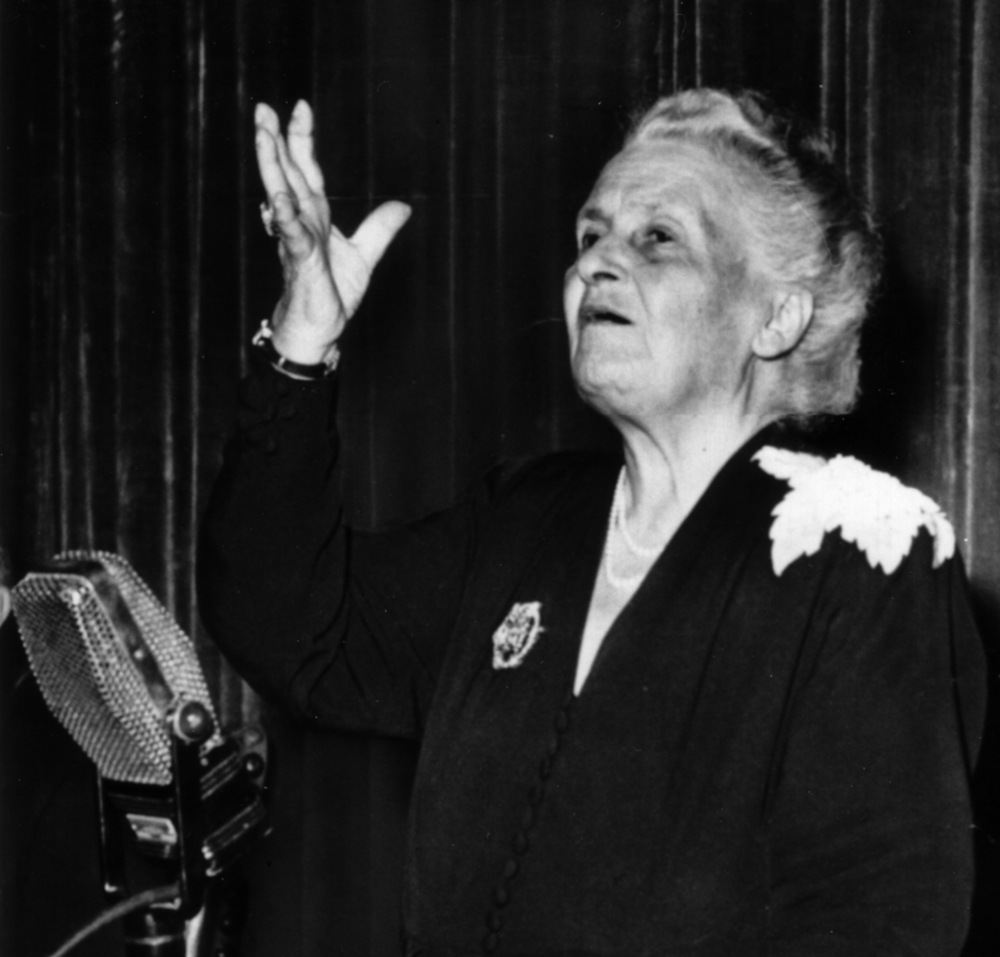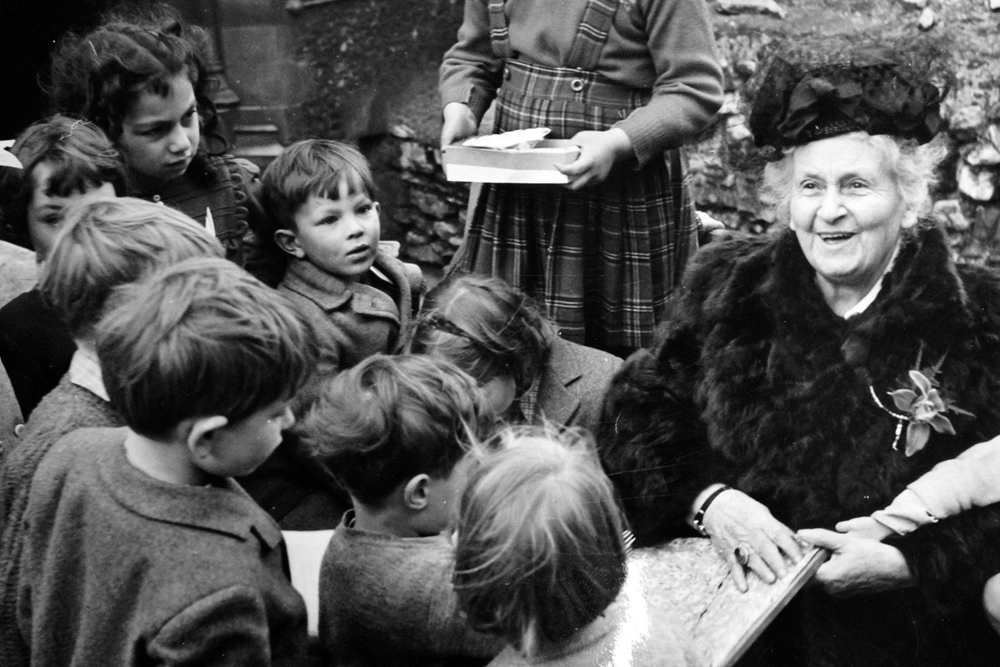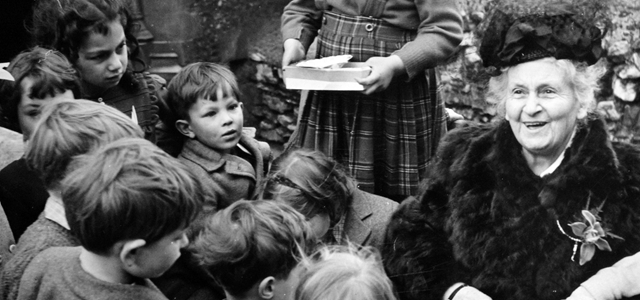Maria Montessori
"The child's development follows a path of successive stages of independence, and our knowledge of this must guide us in our behaviour towards him.
We have to help the child to act, will and think for himself. This is the art of serving the spirit, an art which can be practised to perfection only when working among children."
- Maria Montessori

Dr. Maria Montessori, born on the 31st August 1870 in the town of Chiaravalle, Italy., was a woman far ahead of her time who caused an educational reform movement and built a new educational system for children from birth to adulthood. She was a physician, educator, and innovator, acclaimed for her educational method that builds on the way children learn naturally.She dedicated herself to helping children have a better chance in life through education and believed that the child is the answer to a peaceful future and a renewal of humanity.
Her ideas and theories were revolutionary in her time over a 100 years ago; however, they have withstood the test of time. She opened the first Montessori school—the Casa dei Bambini, or Children’s House—in Rome on January 6, 1907. Subsequently, she traveled the world and wrote extensively about her approach to education, attracting many devotees. Now her theories and many of her ideas are now accepted as mainstream concepts while Montessori schools are growing in number around the world.

I celebrate Maria Montessori…and the fact that she overcame the stifling conventions put on women of the late nineteenth century and succeeded in establishing her own voice for all to hear and follow.
PHYLLIS POVELL, "MONTESSORI COMES TO AMERICA: THE LEADERSHIP OF MARIA MONTESSORI AND NANCY MCCORMICK RAMBUSCH"
Her life's work is devoted to the cause of the child, for she believed the child is the answer to a peaceful future and a renewal of humanity. Maria put many different activities and other materials into the children’s environment but kept only those that engaged them. What she came to realise was that children who were placed in an environment where activities were designed to support their natural development had the power to educate themselves. She believed that children have immense creative powers within themselves, and recognized that their spiritual development is central to their growth. Using scientific observation and experience gained from her earlier work with young children, Maria designed learning materials and a classroom environment that fostered the children’s natural desire to learn and provided freedom for them to choose their own materials.

The rest of her life, she worked tirelessly developing her educational philosophy and curriculum around the unique developmental needs of the child at each phase of development. In 1939, she opened the Montessori Training Center in the Netherlands and founded a series of teacher training courses in India. She believed that only through an education could peace be established in the world. She was nominated for the Nobel Peace Prize three times in 1940, 1950, and 1952.
Dr. Maria Montessori died in Holland in 1952. Her work lives on through the Association Montessori Internationale (AMI), the organization she founded in the Netherlands.





